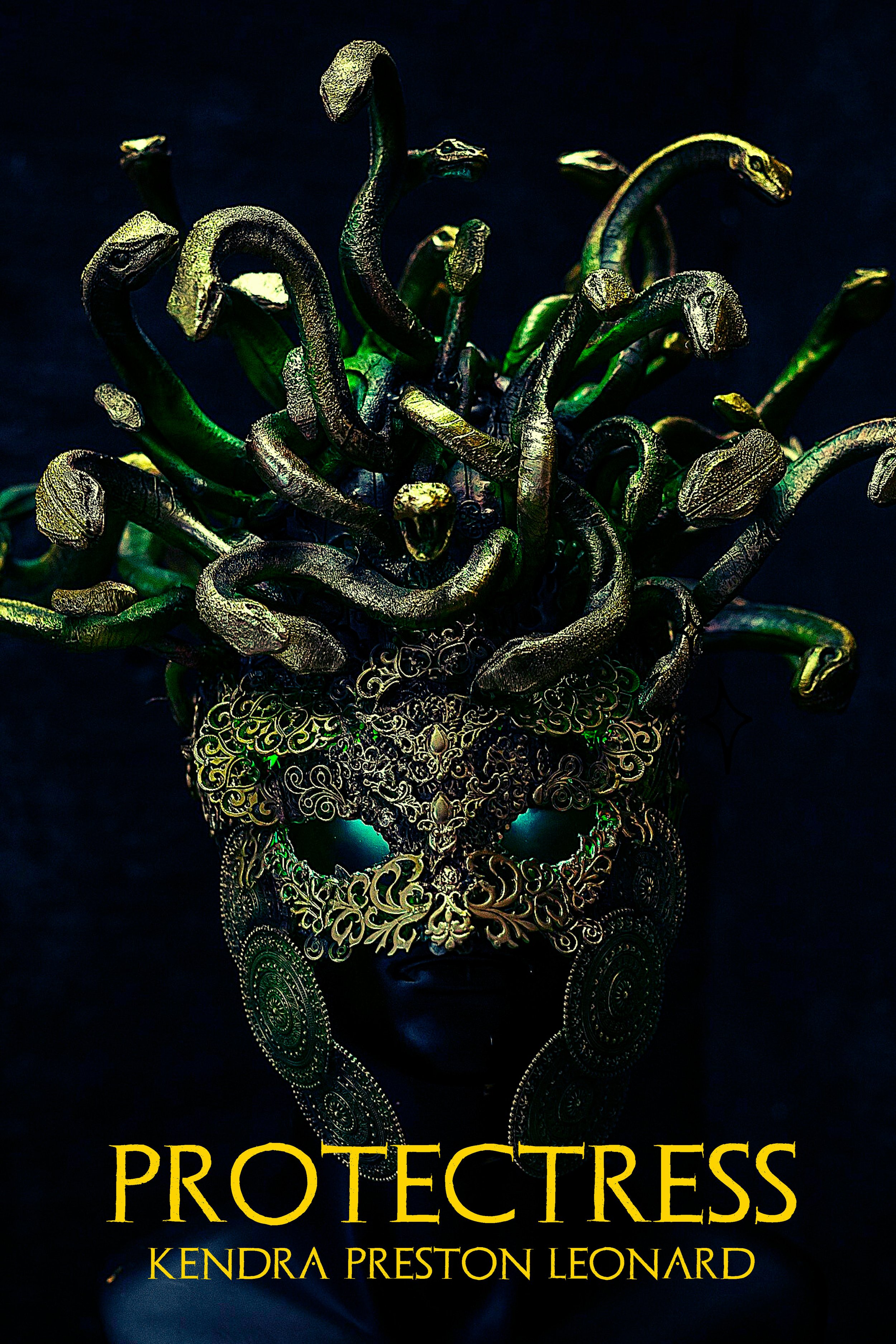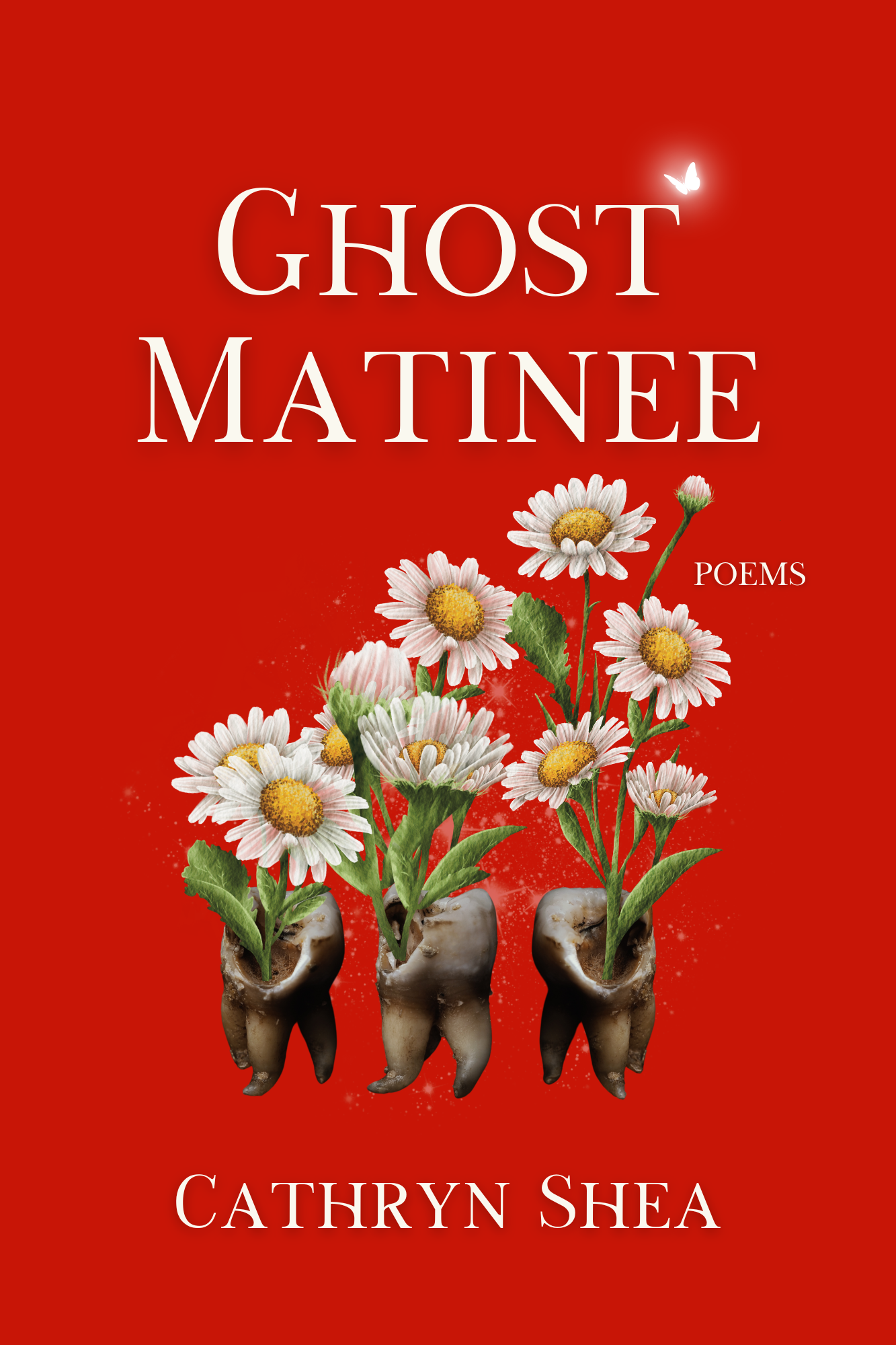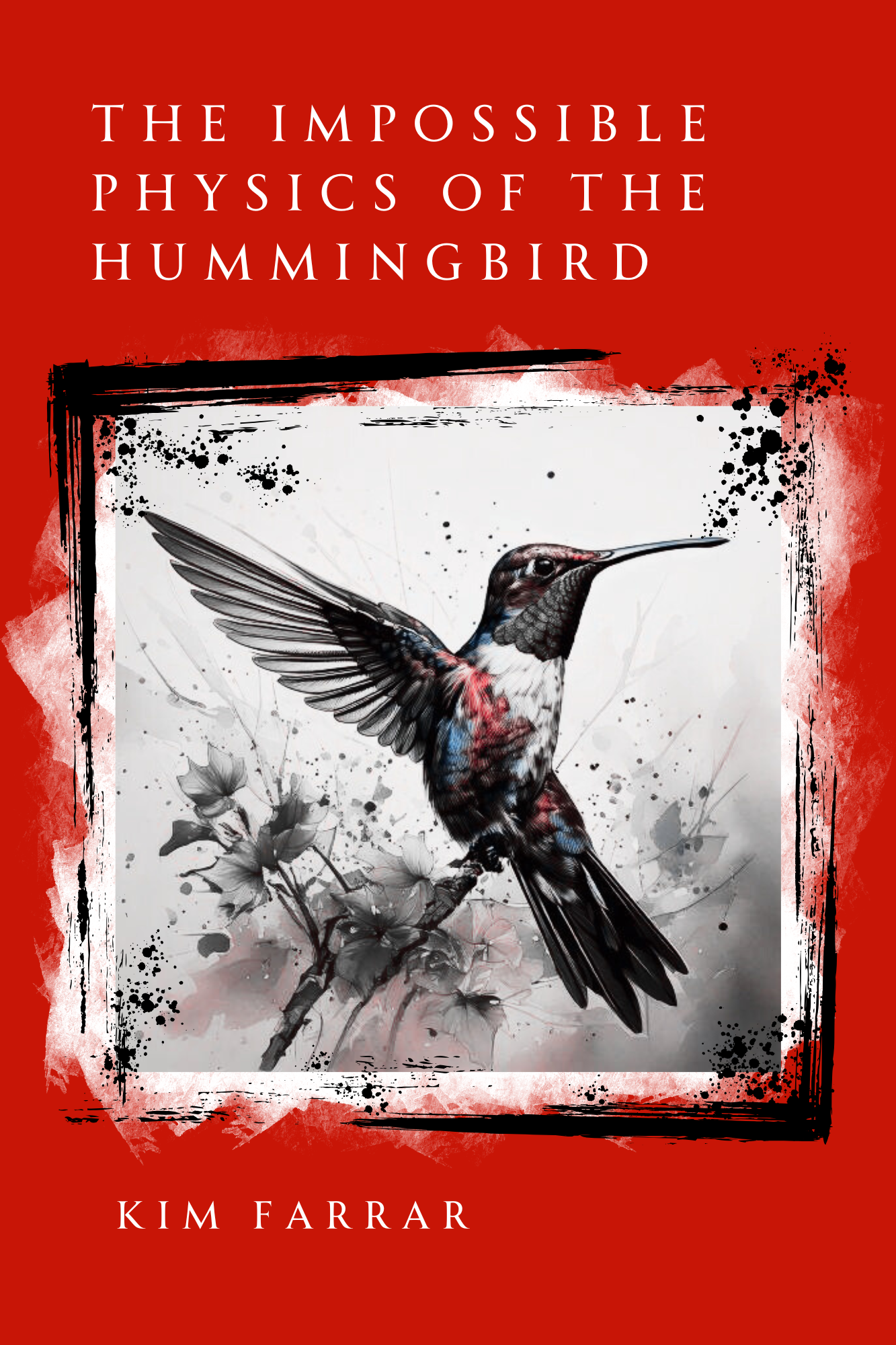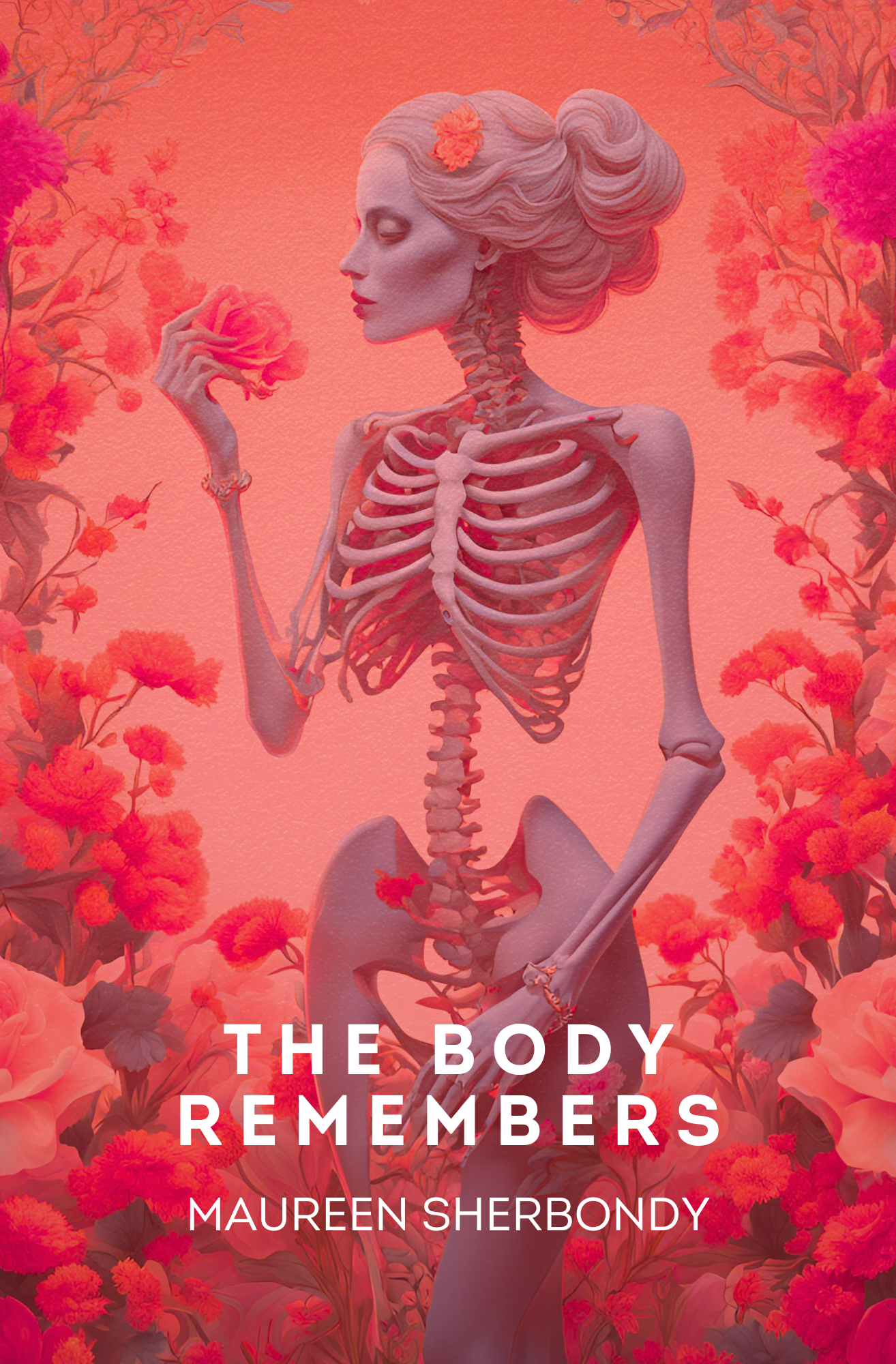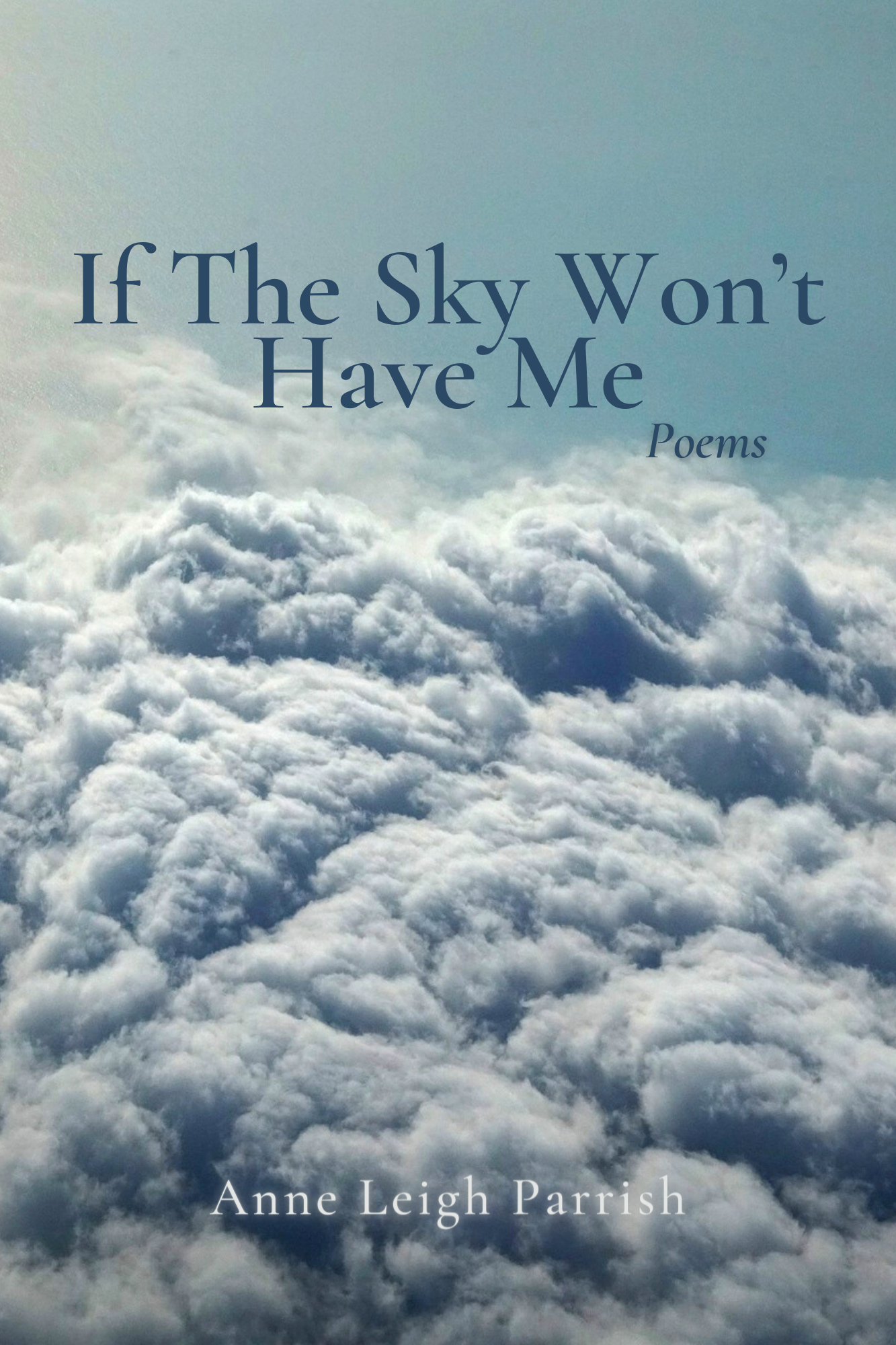PROTECTRESS
A clever, illuminating feminist take on Greek mythology. — Kirkus Reviews
PROTECTRESS is a hybrid poetry-prose novella offering a risky take on the legend of Medusa. With stunning economy of words and a delicate hand, Protectress provokes us to think about the feminist identity and the power of compassion. Readers who fell deeply for Emily Wilson’s translation of The Odyssey, Margaret Atwood’s The Penelopiad, Madeleine Miller’s Circe, Emily St. John Mandel’s Station Eleven, Maria Dahvana Headley’s translation of Beowulf, and Toby Barlow's Sharp Teeth will find themselves enamoured with PROTECTRESS.
A clever, illuminating feminist take on Greek mythology. — Kirkus Reviews
PROTECTRESS is a hybrid poetry-prose novella offering a risky take on the legend of Medusa. With stunning economy of words and a delicate hand, Protectress provokes us to think about the feminist identity and the power of compassion. Readers who fell deeply for Emily Wilson’s translation of The Odyssey, Margaret Atwood’s The Penelopiad, Madeleine Miller’s Circe, Emily St. John Mandel’s Station Eleven, Maria Dahvana Headley’s translation of Beowulf, and Toby Barlow's Sharp Teeth will find themselves enamoured with PROTECTRESS.
A clever, illuminating feminist take on Greek mythology. — Kirkus Reviews
PROTECTRESS is a hybrid poetry-prose novella offering a risky take on the legend of Medusa. With stunning economy of words and a delicate hand, Protectress provokes us to think about the feminist identity and the power of compassion. Readers who fell deeply for Emily Wilson’s translation of The Odyssey, Margaret Atwood’s The Penelopiad, Madeleine Miller’s Circe, Emily St. John Mandel’s Station Eleven, Maria Dahvana Headley’s translation of Beowulf, and Toby Barlow's Sharp Teeth will find themselves enamoured with PROTECTRESS.
Praise for PROTECTRESS
“Medusa was raped. / Medusa was not raped. / Medusa was given rohypnol,” read the opening lines of the prelude to this contemporary retake on Greek mythology. The language addresses issues of rape culture, particularly the way survivors are scrutinized rather than protected in the press and social media. Enter Medusa, known as Duse to her friends. She and her gorgon sisters inhabit the city and work regular jobs. Medusa happens to be a humanities professor, but she’s also a guardian of women (“Like Batman, she will always be a vigilante”). But the famous gorgon has a problem; Athena is coming for her. Here, Athena is a symbol of “misplaced feminism”—a goddess who favors and supports the patriarchy. Medusa wants Athena to change voluntarily and feel remorse for the harm that she, as a “slut-shaming bitch,” has caused other women. A confrontation between Duse and Athena comes in the form of an assembly attended by all manner of mythical beings. Leonard’s novella astutely examines the consequences of “cruelty between women.” Leonard’s message is a positive one of compassion and self-empowerment—and this resonates in her simple, stirring use of language: Medusa chooses to forge “a path from the past to power.” And goddess Hera says, “I can create real sanctuaries for women, places of protection, ways of power.” This book urges women to care for one another and reconsider the ways their perceptions of female identity are shaped. Fans of contemporary rewrites of ancient mythology, like Margaret Atwood’s exploration of society’s double standards regarding women in The Penelopiad (2005), will be particularly intrigued by this astute debut offering by Leonard. And although some knowledge of the classics would be helpful, newcomers can still enjoy a captivating storyline.
—Kirkus Reviews
About KENDRA PRESTON LEONARD
Kendra Preston Leonard is a poet, lyricist, and librettist whose work is inspired by the local, historical, and mythopoeic. She is especially interested in addressing issues of social justice, the environment, and disability through poetry. Her first chapbook, Making Mythology, was published in 2020 by Louisiana Literature Press, and her work appears in numerous publications including vox poetica, lunch, These Fragile Lilacs, and Upstart: Out of Sequence: The Sonnets Remixed. Leonard collaborates regularly with composers on works for voice including new operas and song cycles. Her lyrics and libretti have been set by composers including Jessica Rudman, Rosśa Crean, and Allyssa Jones. The author of numerous scholarly books and articles, Leonard is also a musicologist and music theorist, and her academic work focuses on women and music in the twentieth and twenty-first centuries; music and the early modern; and music and screen history. Follow her on Twitter at @K_Leonard_PhD or visit her site at https: //kendraprestonleonard.hcommons.org/.
-
Genre: Hybrid poetry-prose novella
ISBN: 978-1-950730-63-6
Publication Date: January 11, 2022

